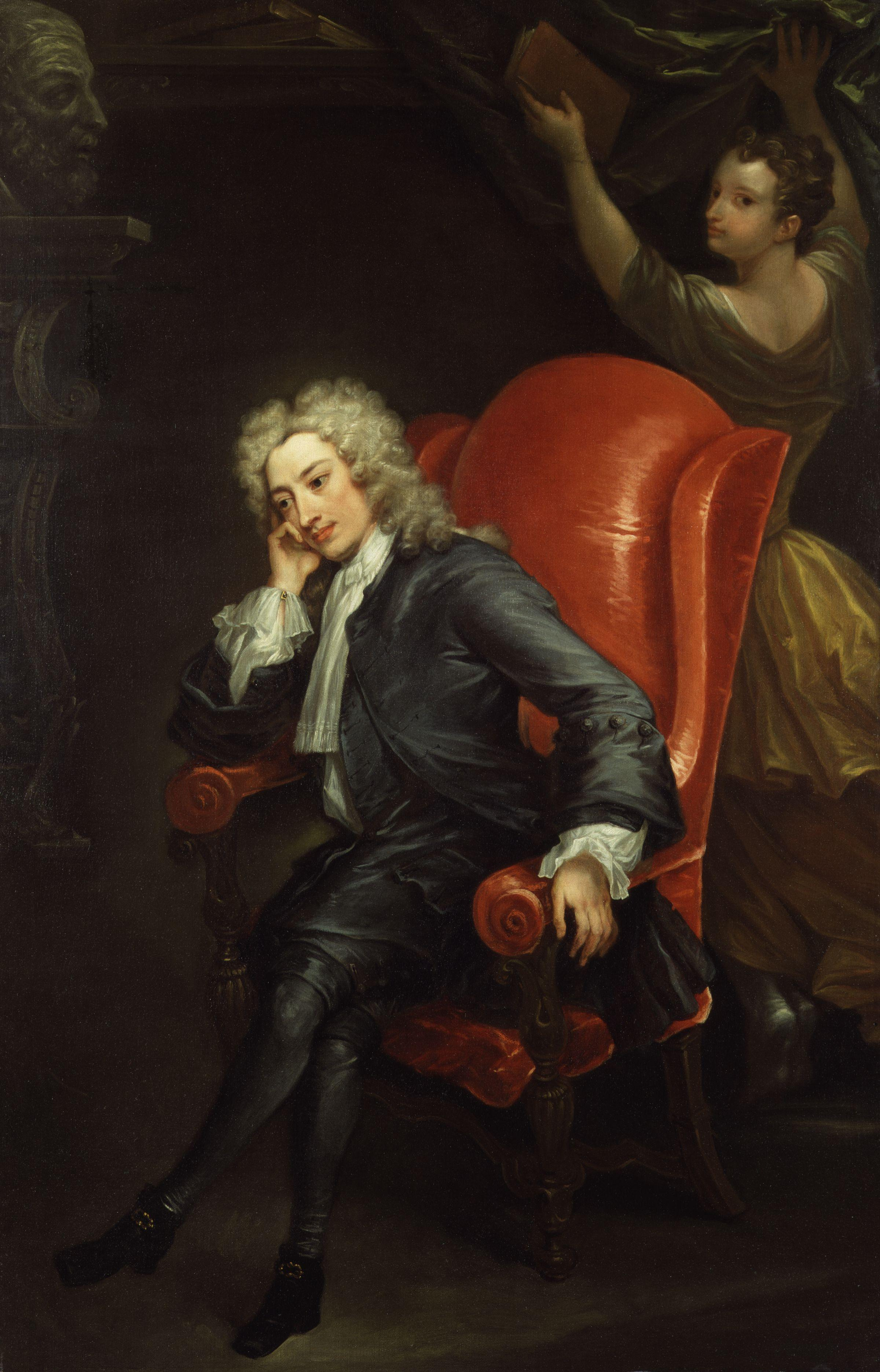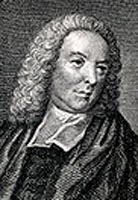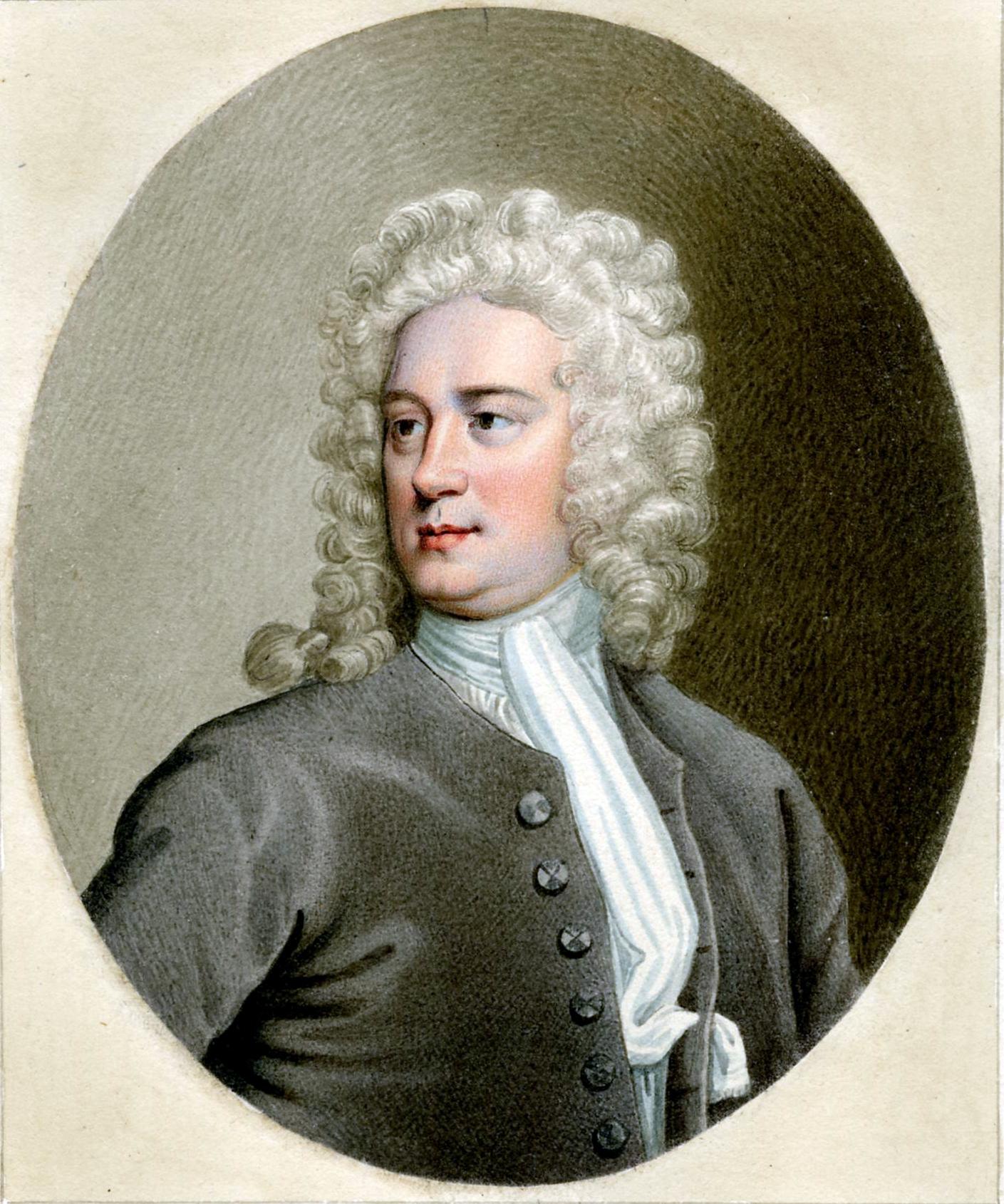|
1714 In Poetry
Nationality words link to articles with information on the nation's poetry or literature (for instance, Irish or France). Events * March – The Scriblerus Club, an informal group of literary friends, is formed by Jonathan Swift, Alexander Pope, John Gay, John Arbuthnot (at whose London house they meet), Thomas Parnell, Henry St. John and Robert Harley. * End – Venetian sea-captain Julije Balović begins compilation of the ''Perast Chronicle'', a collection of epic poetry. Works published United Kingdom * John Danforth (poet), "A Poem, Upon the Much Honoured ..Mrs. Maria Mather", English, Colonial America * William Diaper, ''An Imitation of the Seventeenth Epistle of the First Book of Horace'' * Laurence Eusden, ''A Letter to Mr. Addison, on the King's Accession to the Throne'' * Abel Evans, ''Prae-existence: A poem, in imitation of Milton'' * John Gay: ** ''The Shepherd's Week'' (pastoral) ** ''The Fan'' * Samuel Jones, ''Poetical Miscellanies on Several Occasi ... [...More Info...] [...Related Items...] OR: [Wikipedia] [Google] [Baidu] |
Irish Poetry
Irish poetry is poetry written by poets from Ireland. It is mainly written in Irish language, Irish and English, though some is in Scottish Gaelic literature, Scottish Gaelic and some in Hiberno-Latin. The complex interplay between the two main traditions, and between both of them and other poetries in English and Scottish Gaelic literature, Scottish Gaelic, has produced a body of work that is both rich in variety and difficult to categorise. The earliest surviving poems in Irish date back to the 6th century, while the first known poems in English from Ireland date to the 14th century. Although there has always been some cross-fertilization between the two language traditions, an English-language poetry that had absorbed themes and models from Irish did not finally emerge until the 19th century. This culminated in the work of the poets of the Irish Literary Revival in the late 19th and early 20th century. Towards the last quarter of the 20th century, modern Irish poetry tended ... [...More Info...] [...Related Items...] OR: [Wikipedia] [Google] [Baidu] |
William Diaper
William Diaper (1685–1717) was an English clergyman, poet and translator of the Augustan era. Having taken the wrong political side at a time of regime change, he lost the patrons who were advancing his career and died in obscurity shortly afterwards. Life Biographical details for William Diaper are sparse. He was born in Bridgwater, the son of Joseph Diaper, and attended Balliol College, Oxford in 1699 as a poor scholar (''pauper puer''), and took his BA degree in 1705. In 1709 he was ordained as a deacon and became a curate in the parish of Brent Knoll, overlooking the Somerset Levels, which he made the subject of his humorous first poem. His next set of poems, the innovative ''Nereides, or Sea-Eclogues'', was published in 1712 and earned him entry into the London literary world. In particular Diaper came to the notice of Jonathan Swift, who mentions the poet at this time in his ''A Journal to Stella''. In March 1712 he reported: "Here is a young fellow has writ some Sea ... [...More Info...] [...Related Items...] OR: [Wikipedia] [Google] [Baidu] |
Antoine Houdart De La Motte
Antoine Houdar de la Motte (18 January 167226 December 1731) was a French author. De la Motte was born and died in Paris. In 1693 his comedy, ''Les Originaux'' (Les originaux, ou, l'Italien), was a complete failure, and so depressed the author that he contemplated joining the Trappists. Four years later he began writing texts for operas and ballets, e.g. ''L'Europe galante'' (1697), and tragedies, one of which, ''Inès de Castro'' (1723), was an immense success at the Theâtre Français. He was a champion of the moderns in the revived controversy of the ancients and moderns. His ''Fables nouvelles'' (1719) was regarded as a modernist manifesto. Anne Dacier had published (1699) a translation of the ''Iliad'', and La Motte, who knew no Greek, made a translation (1714) in verse founded on her work. He said of his own work: "I have taken the liberty to change what I thought disagreeable in it." He defended the moderns in the ''Discours sur Homère'' prefixed to his translation, an ... [...More Info...] [...Related Items...] OR: [Wikipedia] [Google] [Baidu] |
John Wilmot, 2nd Earl Of Rochester
John Wilmot, 2nd Earl of Rochester (1 April 1647 – 26 July 1680) was an English poet and courtier of King Charles II's Restoration court. The Restoration reacted against the "spiritual authoritarianism" of the Puritan era. Rochester embodied this new era, and he became as well known for his rakish lifestyle as for his poetry, although the two were often interlinked. He died as a result of venereal disease at the age of 33. Rochester was described by his contemporary Andrew Marvell as "the best English satirist," and he is generally considered to be the most considerable poet and the most learned among the Restoration wits. His poetry was widely censored during the Victorian era, but enjoyed a revival from the 1920s onwards, with reappraisals from noted literary figures such as Graham Greene and Ezra Pound. The critic Vivian de Sola Pinto linked Rochester's libertinism to Hobbesian materialism. During his lifetime, Rochester was best known for ''A Satyr Against Reason and ... [...More Info...] [...Related Items...] OR: [Wikipedia] [Google] [Baidu] |
George Berkeley
George Berkeley (; 12 March 168514 January 1753) – known as Bishop Berkeley (Bishop of Cloyne of the Anglican Church of Ireland) – was an Anglo-Irish philosopher whose primary achievement was the advancement of a theory he called "immaterialism" (later referred to as " subjective idealism" by others). This theory denies the existence of material substance and instead contends that familiar objects like tables and chairs are ideas perceived by the mind and, as a result, cannot exist without being perceived. Berkeley is also known for his critique of abstraction, an important premise in his argument for immaterialism. In 1709, Berkeley published his first major work, '' An Essay Towards a New Theory of Vision'', in which he discussed the limitations of human vision and advanced the theory that the proper objects of sight are not material objects, but light and colour. This foreshadowed his chief philosophical work, ''A Treatise Concerning the Principles of Human Knowledg ... [...More Info...] [...Related Items...] OR: [Wikipedia] [Google] [Baidu] |
Mary Wray
Mary may refer to: People * Mary (name), a feminine given name (includes a list of people with the name) Religious contexts * New Testament people named Mary, overview article linking to many of those below * Mary, mother of Jesus, also called the Blessed Virgin Mary * Mary Magdalene, devoted follower of Jesus * Mary of Bethany, follower of Jesus, considered by Western medieval tradition to be the same person as Mary Magdalene * Mary, mother of James * Mary of Clopas, follower of Jesus * Mary, mother of John Mark * Mary of Egypt, patron saint of penitents * Mary of Rome, a New Testament woman * Mary, mother of Zechariah and sister of Moses and Aaron; mostly known by the Hebrew name: Miriam * Mary the Jewess one of the reputed founders of alchemy, referred to by Zosimus. * Mary 2.0, Roman Catholic women's movement * Maryam (surah) "Mary", 19th surah (chapter) of the Qur'an Royalty * Mary, Countess of Blois (1200–1241), daughter of Walter of Avesnes and Margaret of Blois * Mar ... [...More Info...] [...Related Items...] OR: [Wikipedia] [Google] [Baidu] |
Edward Young
Edward Young (c. 3 July 1683 – 5 April 1765) was an English poet, best remembered for ''Night-Thoughts'', a series of philosophical writings in blank verse, reflecting his state of mind following several bereavements. It was one of the most popular poems of the century, influencing Goethe and Edmund Burke, among many others, with its notable illustrations by William Blake. Young also took holy orders, and wrote many fawning letters in search of preferment, attracting accusations of insincerity. Early life Young was a son of Edward Young, later Dean of Salisbury, and was born at his father's rectory at Upham, near Winchester, where he was baptized on 3 July 1683. He was educated at Winchester College, and matriculated at New College, Oxford, in 1702. He later migrated to Corpus Christi, and in 1708 was nominated by Archbishop Tenison to a law fellowship at All Souls. He took his degree of Doctor of Canon Law in 1719.Chisholm, 1911 Literary career Young's first publica ... [...More Info...] [...Related Items...] OR: [Wikipedia] [Google] [Baidu] |
Thomas Warton The Elder
Thomas Warton, the elder (c. 168810 September 1745), was an English clergyman and schoolmaster, known as the second professor of poetry at Oxford, a position he owed to Jacobite sympathies. Life He was born about 1688, son of Antony Warton (1650–1715), vicar of Godalming. He matriculated at Hart Hall, Oxford, on 3 April 1706, but soon migrated to Magdalen College, where he held a demyship from 1706 to 1717, and a fellowship from 1717 to 1724. He graduated B.A. on 17 February 1710, M.A. in 1712, and B.D. in 1725. In 1717-18, Warton circulated both in manuscript and in print a satire in verse on George I, which he entitled ''The Turnip Hoer'', and wrote lines for the "Old Pretender" James III's picture. No copy of either composition is now known. His Jacobite sympathies made him popular in the university, and he was elected professor of poetry, in succession to Joseph Trapp, on 17 July 1718. He was re-elected, in spite of the opposition of the Constitution Club, for a second ter ... [...More Info...] [...Related Items...] OR: [Wikipedia] [Google] [Baidu] |
Thomas Tickell
Thomas Tickell (17 December 1685 – 23 April 1740) was a minor English poet and man of letters. Life The son of a clergyman, he was born at Bridekirk near Cockermouth, Cumberland. He was educated at St Bees School 1695–1701, and in 1701 entered The Queen's College, Oxford, taking his M.A. degree in 1709. He became a fellow of his college in the next year, and in 1711 University Reader or Professor of Poetry. He did not take orders, but by a dispensation from the Crown was allowed to retain his fellowship until his marriage to Clotilda Eustace in 1726 in Dublin. Tickell acquired the name ‘Whigissimus’, because of his close association with the Whig parliamentary party. In 1717 he was appointed Under Secretary to Joseph Addison, Secretary of State. In 1724 Tickell was appointed secretary to the Lords Justices of Ireland, a post which he retained until his death in 1740, at Bath, aged 54. Tickell owned a house and small estate in Glasnevin on the banks of the River Tolka, ... [...More Info...] [...Related Items...] OR: [Wikipedia] [Google] [Baidu] |
Richard Steele
Sir Richard Steele (bap. 12 March 1672 – 1 September 1729) was an Anglo-Irish writer, playwright, and politician, remembered as co-founder, with his friend Joseph Addison, of the magazine ''The Spectator''. Early life Steele was born in Dublin, Ireland, in March 1672 to Richard Steele, a wealthy attorney, and Elinor Symes (''née'' Sheyles); his sister Katherine was born the previous year. He was the grandson of Sir William Steele, Lord Chancellor of Ireland and his first wife Elizabeth Godfrey. His father lived at Mountown House, Monkstown, County Dublin. His mother, of whose family background little is known, was described as a woman of "great beauty and noble spirit". His father died when he was four, and his mother a year later. Steele was largely raised by his uncle and aunt, Henry Gascoigne (secretary to James Butler, 1st Duke of Ormonde), and Lady Katherine Mildmay. A member of the Protestant gentry, he was educated at Charterhouse School, where he first met Add ... [...More Info...] [...Related Items...] OR: [Wikipedia] [Google] [Baidu] |
Nicholas Rowe (writer)
Nicholas Rowe (; 20 June 1674 – 6 December 1718), English dramatist, poet and miscellaneous writer, was appointed Poet Laureate in 1715. His plays and poems were well-received during his lifetime, with one of his translations described as one of the greatest productions in English poetry. He was also considered the first editor of the works of William Shakespeare. Life Nicholas Rowe was born in Little Barford, Bedfordshire, England, son of John Rowe (d. 1692), barrister and sergeant-at-law, and Elizabeth, daughter of Jasper Edwards, on 20 June 1674. His family possessed a considerable estate at Lamerton in Devonshire. His father practised law and published Benlow's and Dallison's Reports during the reign of King James II. The future Poet Laureate was educated first at Highgate School, and then at Westminster School under the guidance of Richard Busby. In 1688, Rowe became a King's Scholar, which was followed by his entrance into Middle Temple in 1691. His entrance into Midd ... [...More Info...] [...Related Items...] OR: [Wikipedia] [Google] [Baidu] |
1712 In Poetry
Nationality words link to articles with information on the nation's poetry or literature (for instance, Irish or France). Events * Scriblerus Club begins meeting (stops meeting in 1745) Works published * Sir Richard Blackmore, ''Creation: a philosophical poem'' * John Dennis, ''Essay on the Genius and Writings of Shakspear: with Some Letters of Criticism to the Spectator'', a pamphlet of literary criticism, LondonPaul, Harry Gilbert ''John Dennis: His Life and Criticism'' p 64, New York: Columbia University Press, 1911, retrieved via Google Books on February 11, 2010 * William Diaper: ** ''Dryaides; or, The Nymphs Prophecy'' (published this year, although the book states "1713") ** ''Nereides; or, Sea-Eclogues'' * Thomas Ellwood, ''Davideis: The Life of King David of Israel'' * George Granville, Lord Lansdowne, ''Poems Upon Several Occasions'' * Bernard Mandeville, published anonymously, ''Typhon; or, The Wars Between the Gods and Giants'' * Peter Anthony Motteux, ''A Poem Upon T ... [...More Info...] [...Related Items...] OR: [Wikipedia] [Google] [Baidu] |



01.jpg)



_-_Sir_Richard_Steele_-_NPG_3227_-_National_Portrait_Gallery.jpg)
_Arms.png)